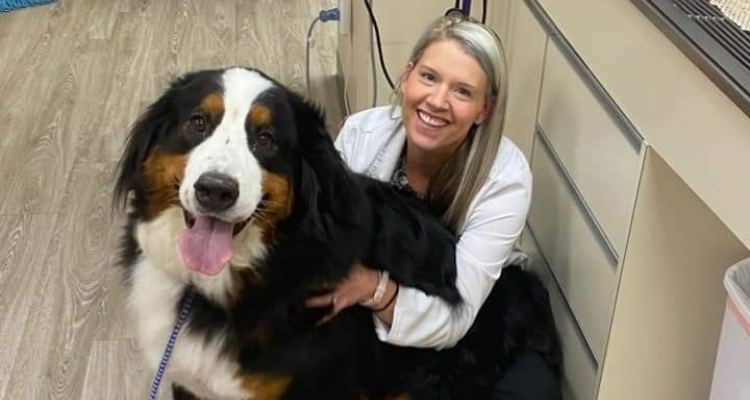
Pet Allergies & Pet Dermatitis
Now There’s Help for Your Itchy Pet
Does your pet…
- Wheeze, sneeze, cough or snore a lot?
- Constantly chew, dig or lick paws, tail, hindquarters and belly?
- Scratch at ears and eyes or have runny, weepy eyes?
- Vomit frequently or have diarrhea?
- Have bald spots or sores?
- Have swollen paws, open sores or scabs?
If so, your poor furry friend may be suffering from allergies and/or dermatitis. While pet allergies and many pet skin conditions can’t always be cured, they can be controlled.
Flea Allergic Dermatitis
Complications transpire when your pets ingest, inhale or come in direct contact with an allergen and then try to rid themselves of these substances. Symptoms of an allergy can include:
- Flea Allergic Dermatitis (FAD) is the most common skin disease in pets, and flea control is often the fastest, easiest way to help an itchy dog or cat.
- Very few fleas are necessary to trigger severe scratching, lesions, skin inflammation, hair loss and more, and they can exist year-round in your home torturing your poor pet.
SOLUTIONS: If fleas are the culprits, a year-round treatment with an effective medication such as Revolution® or Bravecto® can be prescribed for your cat or dog.
Atopic Dermatitis
Atopic Dermatitis is the second most common skin disease in dogs. This chronic, lifelong condition is associated with allergies and causes inflammation, rash and itchiness. This disease…
- Usually shows up within the first 3 years of a pet’s life and symptoms usually get worse over time.
- Can be brought on by a host of allergens.
- Can flare up seasonally or plague your pet year-round.
- Can cause your pet’s skin to become red, raw and itchy.
- Can cause hair loss, skin infections, ear infections and more.
SOLUTIONS: The best long-term solution for Atopic Dermatitis is allergy testing followed by allergy shots or drops under the tongue (hyposensitization). Similar to what people with severe allergies undergo, this great treatment works well for such a terrible condition.
Seasonal Allergies
If your pet only scratches at certain times of the year, odds are your furry friend has a seasonal allergy to:
- Pollens
- Grasses or weeds
- Trees, etc.
SOLUTIONS: Antihistamines may be prescribed depending on your pet’s condition. We’ll work with you to find the most effective type and dosage and give you environmental management tips to protect your pet.
Contact Allergies
If your dog or cat itches year-round, your pet may have an environmental allergy reacting to:
- Kitty litter
- Mold or mildew
- Household cleaning products
- Home sanitizers, perfumes or colognes
- Or more
SOLUTIONS: Antihistamines, or another allergy medication, may be prescribed and again, we’ll tell you ways to modify your home environment to help your pet.
Food Allergies
Food allergies can develop at any age and over time. In fact, a food that’s been liked and tolerated for years can suddenly make your pet sick. Food allergies are more difficult to diagnose but here are some indicators that your pet may have one. Your pet…
- Has symptoms that aren’t seasonal
- Often is very itchy around the bottom
- Has eaten the same food for years
- Suffers from chronic ear infections
SOLUTIONS: If a food allergy is suspected, a good hypoallergenic, prescription diet is often the treatment and we’ll work with you to find the right one for your pet.
If your pet is suffering and in pain…
…or if symptoms are severe, a corticosteroid treatment may be required. Other options:
- Apoquel® offers a new approach to itch relief. Taken once daily, it works as fast as corticosteroids to alleviate the itching and pain of allergies and dermatitis but has fewer side effects.
- Another new effective drug is Cytopoint™. A simple injection of this med, given at our clinic, can provide your dog relief within 1 day and lasts for 4-8 weeks. Damaged skin can begin healing within 7 days.
Pet Allergy Care In Omaha, NE
The first step is to schedule your pet for a physical exam so that we can diagnose the problem and provide the right treatment.
